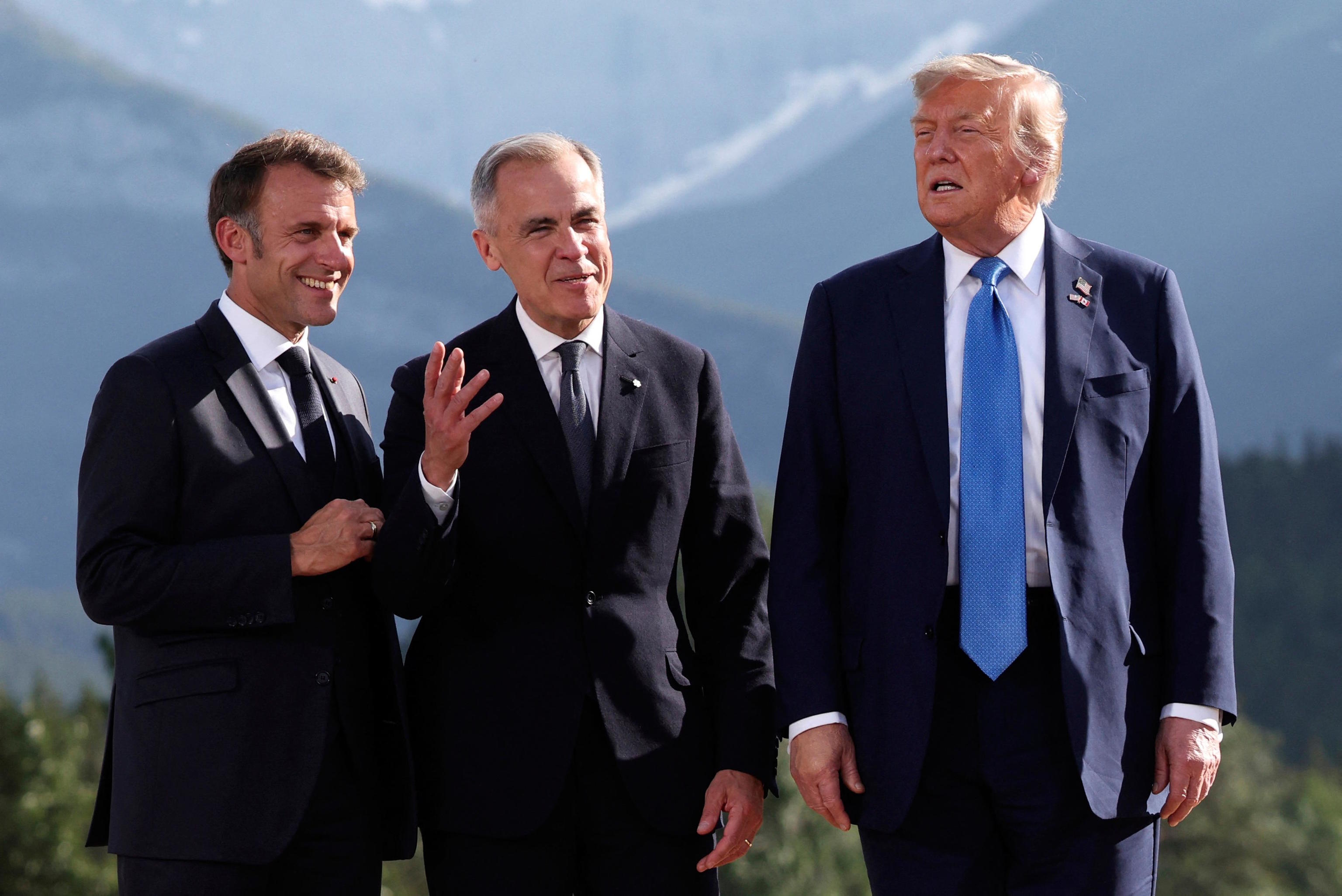Donald Trump and Emmanuel Macron are not on the same page. The latest evidence was seen at the G-7 regarding the conflict between Israel and Iran. The U.S. President stated on Tuesday that he wants "a real end" to the ongoing conflict, not just a ceasefire. Meanwhile, the French President asserts that there is "an offer of a ceasefire."
"I am not looking for a ceasefire, we are looking for something better than a ceasefire," Trump told the press aboard Air Force One, just before returning to the United States from an early departure from a G7 summit in Canada. The President emphasized that he wants Iran to "completely give in," and is interested in finding "a real ending, not just a ceasefire."
On the other hand, the French President justified Donald Trump's sudden absence at the G7 summit in Canada by stating that "there is an offer of a ceasefire" between Israel and Iran, although the American President himself stated on social media that his premature departure "has nothing to do with the cessation of hostilities in the Middle East."
"Macron is always wrong," was the comment on Truth Social with which Trump closed the controversy, criticizing the French President for "misrepresenting" his intentions regarding Israel and Iran and his departure from the G7 summit. "He has no idea why I am now on my way to Washington," he said.
"I believe that negotiations (regarding Iran's nuclear program) will resume and that the civilian population needs to be protected," Macron emphasized, stating that the U.S. Administration has provided assurances that they will "find a way to reach a ceasefire." "They can pressure Israel and things can change," added the French President.
Trump's departure, who had planned to meet with Volodimir Zelenski in the context of the G7, left a strange sense of emptiness at the Kananaskis summit. Zelenski had anticipated discussing with him the possible purchase of a weapons package from Washington ("we are not talking about assistance") and new sanctions on Russia.
Trump, not a fan of international summits, made a brief appearance at Kananaskis, held a bilateral meeting with Canadian Prime Minister Mark Carney, posed with other leaders, and left abruptly, without getting involved in the tariff war and other issues that European politicians tried to raise.
United Front
Emmanuel Macron, Prime Minister Keir Starmer, and Chancellor Friedrich Merz, however, took advantage of the meeting to present a united front in favor of "de-escalation" between Israel and Iran, even managing to issue a joint statement on the matter despite Trump's resistance.
The G7 statement, issued late on Monday, calls for both parties to "de-escalate militarily," while acknowledging "Israel's right to self-defense" and pointing to Iran as "the main source of regional instability and terror." The seven wealthiest countries pledged to "remain vigilant" about the conflict's implications for international energy markets and to "safeguard their stability."
Throughout the day, the three European leaders coordinated a call between their respective Foreign Ministers and their Iranian counterpart, Abbas Araghchi, urging him to return to the negotiating table, commit to ending uranium enrichment, and not follow through on the threat to withdraw from the Nuclear Non-Proliferation Treaty.
Araghchi responded by stating that if President Trump truly wants a solution to the conflict, he must demand an immediate halt to the "military aggression" from Israel. "All it takes is a call from Washington to Netanyahu," emphasized the Iranian Minister. "That could pave the way for a return to diplomacy."
In the last 48 hours, European leaders have also reached out to Gulf countries to seek their mediation in the conflict. Specifically, the United Arab Emirates, Saudi Arabia, Oman, and Qatar have been approached.
